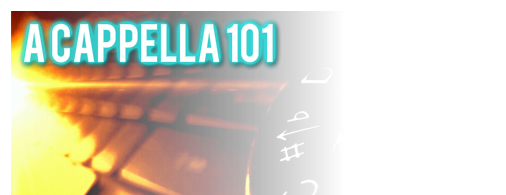
Some believe that it’s a victimless crime. Some believe that only businesses get sued, not users. Some believe that computers make them too anonymous to sue.
That turns out to be wrong on all counts, as a defeated 20-something recently found out to the tune of over half a million dollars in damages and tens of thousands more in legal fees.
Joel Tenenbaum, a 2006 graduate of Goucher College used peer-to-peer file sharing software to illegally download thirty songs.
After hearing the evidence, the jury awarded Sony, owner of the copyrights, statutory damages of $22,500 per song, for a total of $675,000.
The trial judge, perhaps in a gesture to Tenenbaum’s youth and financial situation, reduced the jury’s award of damages to $67,500, one tenth of the jury verdict.
The parties appealed and on September 16, 2011, the Court of Appeals for the First Circuit reversed the trial judge’s leniency and reinstated the full $675,000 in damages. Several appeals followed and on June 25, 2013 the US District Court upheld the full award.
Did the jury and judges make the right call? You be the judge.
According to the Copyright Act, the minimum the jury could have awarded was $750 per song for a total of $22,500. The maximum they could have awarded was $150,000 per song for a total of $4,500,000.
The court found that, as a result of music piracy, between 1999 and 2008, the recording industry as a whole suffered a fifty percent drop in both sales and revenues and Sony BMG Music Entertainment and Warner Music Group, each suffered a fifty percent reduction in workforce since 2000.
Sony brought legal actions targeting the peer-to-peer networks, rather than the individuals who actually used those networks.
These lawsuits shut down particular networks, but individual infringers just found new peer-to-peer networks. Record companies then began to identify and pursue legal actions against individual infringers.
Joel Tenenbaum began illegally downloading and distributing copyrighted songs in 1999 using Napster.
When the Napster network was shut down in 2001 for copyright infringement, Tenenbaum switched to AudioGalaxy, iMesh, Morpheus, Kazaa, and Limewire where he continued to download and distribute copyrighted songs.
Sony only decided to sue Tenenbaum for infringing thirty of its copyrights, though at trial, he eventually admitted to sharing as many as 5,000 songs.
In September 2005, Sony’s attorneys contacted Tenenbaum to resolve the claims before heading to court. But Tenenbaum continued illegally downloading and sharing songs until Sony filed suit in 2007.
Tenenbaum did not sell the tracks, but the court found his actions were nonetheless designed for his personal, private gain and could not be described as noncommercial.
Tenenbaum claimed that any number of other people, from guests to family members, could have used his computer, and that it was impossible to know who actually infringed these copyrights. That position didn't win the day.
And perhaps central to the beliefs of many who sympathize with Tenenbaum is the “no harm, no foul” defense. This argument says that, in the digital realm, copies are made from a free and inexhaustible supply, and that sharing them is just a form of free publicity that helps promote artists and record companies. In other words, Tenenbaum says, Sony needed to show real harm before getting statutory damages.
The court rejected this argument. The Copyright Act gives plaintiffs a choice of whether to ask for profits, actual damages or statutory damages. Statutory damages don’t require actual damages. Statutory damages are available even for "uninjurious and unprofitable invasions of copyright." F.W. Woolworth Co., 344 U.S. at 233.
Tenenbaum appealed the award, arguing that it violated his right to due process under the US Constitution. He claims that the real measure of harm is the cost of the stolen albums, about 30 albums at $15 dollars each.
The court rejected this argument as well, because Copyright damages aren't limited to measurable injury. They are also designed "to discourage wrongful conduct." F.W. Woolworth Co., 344 U.S. at 233.
It's the end of the line. Tenenbaum now faces a bill for the full $675,000, plus his extensive legal fees.
For Sony, though, this case isn’t about the money. It’s about sending a message.

 RSS Feed
RSS Feed